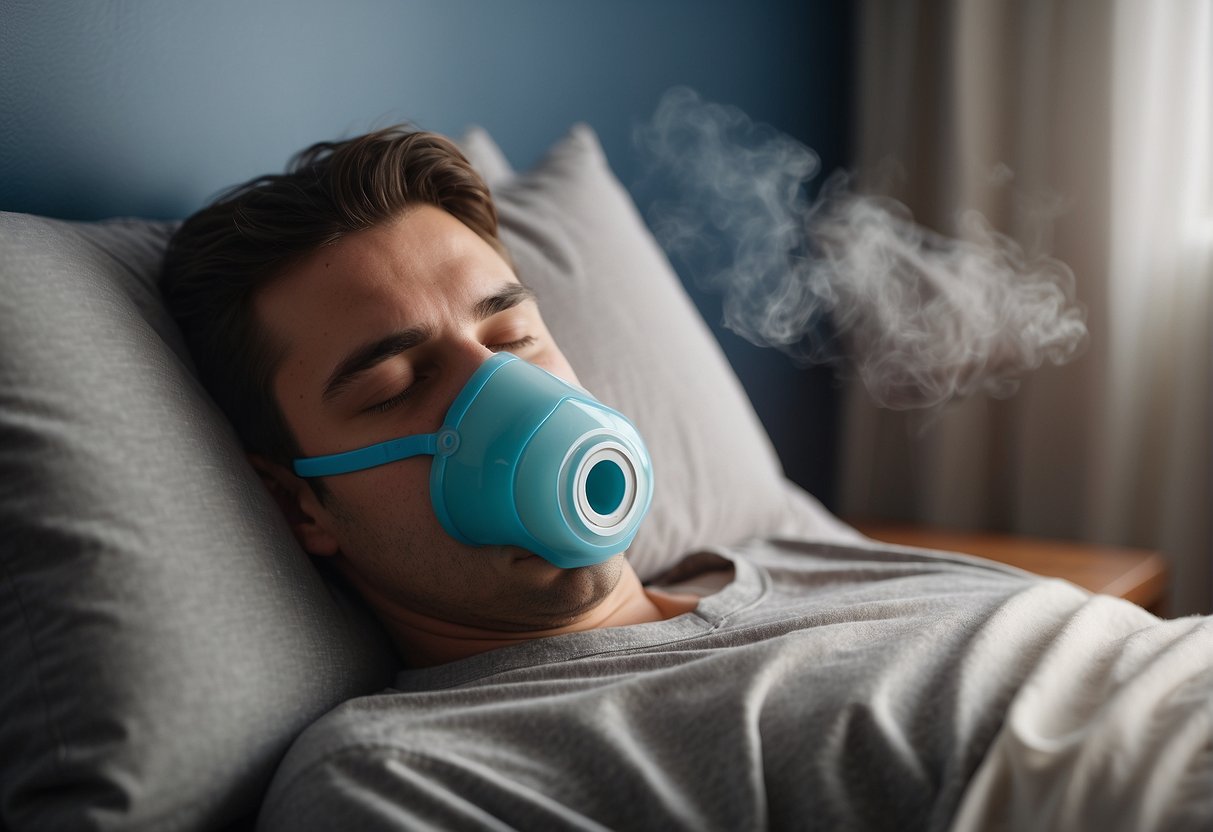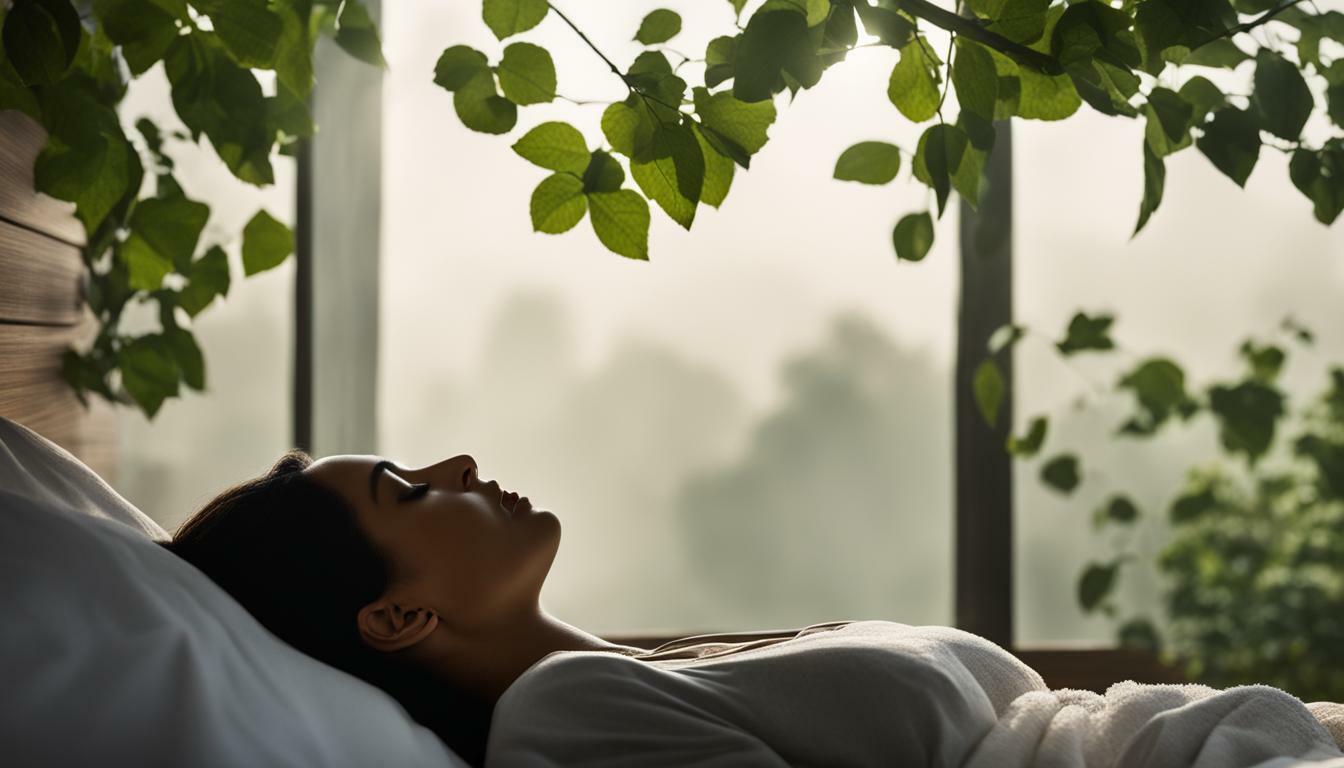If you have ever experienced a stuffy nose, you know how difficult it can be to sleep comfortably. Nasal congestion can make it hard to breathe, which can lead to snoring, sleep apnea, and other sleep disturbances. In this section, we’ll explore the causes of nasal congestion and the impact it can have on your sleep.
Table of Contents
Causes of Nasal Congestion
Nasal congestion can be caused by a variety of factors, including allergies, colds, and sinus infections. Allergies are a common cause of nasal congestion and can be triggered by things like pollen, dust, and pet dander. Colds and sinus infections can also cause nasal congestion, as can changes in temperature and humidity.
Impact of Stuffy Nose on Sleep
Nasal congestion can have a significant impact on your sleep. When you have a stuffy nose, you may find it difficult to breathe through your nose, which can lead to snoring and sleep apnea. Snoring can disrupt your sleep and the sleep of your partner, while sleep apnea can cause you to stop breathing for short periods of time during the night, which can be dangerous.
If you are struggling to sleep with a stuffy nose, there are a few things you can do to alleviate your symptoms. You can try using a humidifier to add moisture to the air, which can help to reduce congestion.
You can also try using a saline nasal spray or a nasal decongestant to help clear your nasal passages. Additionally, sleeping on your side can help to reduce snoring and improve your breathing.
Immediate Relief Techniques

If you’re struggling to sleep due to a stuffy nose, there are a few immediate relief techniques that you can try. Here are some of the most effective ones:
Nasal Strips and Their Usage
Nasal strips are adhesive strips that you can place on the outside of your nose. They work by pulling your nostrils open, which can help to increase airflow and reduce congestion. To use a nasal strip, simply follow these steps:
- Wash your face to remove any oils or dirt that could prevent the strip from sticking properly.
- Peel the backing off the nasal strip and place it on the bridge of your nose, just above your nostrils.
- Press down on the ends of the strip to ensure a good seal.
Nasal strips can be a great option for immediate relief, but they may not work for everyone. If you have sensitive skin or a history of skin allergies, you should be cautious when using nasal strips.
Proper Way to Blow Your Nose
Blowing your nose can be an effective way to clear out mucus and relieve congestion. However, if you don’t do it properly, you could actually make your symptoms worse. Here’s the proper way to blow your nose:
- Use a tissue to blow one nostril at a time. Pinch the other nostril closed with your finger.
- Blow gently and slowly, rather than forcefully.
- Blow into the tissue, rather than into the air.
By blowing your nose properly, you can help to clear out mucus without irritating your nasal passages.
Steam Inhalation Benefits
Steam inhalation is another effective way to relieve nasal congestion. Here’s how to do it:
- Fill a bowl with hot water.
- Add a few drops of eucalyptus or peppermint oil to the water, if desired.
- Lean over the bowl and drape a towel over your head to create a tent.
- Inhale the steam deeply for 5-10 minutes.
The steam can help to loosen mucus and reduce inflammation in your nasal passages. If you don’t have a bowl, you can also try taking a hot shower to achieve similar results.
Medications and Remedies
If you’re struggling to sleep with a stuffy nose, there are several medications and remedies that can help alleviate your symptoms and make it easier to breathe.
Decongestants and Antihistamines
Decongestants and antihistamines are two common types of medications that can help relieve nasal congestion. Decongestants work by narrowing the blood vessels in your nasal passages, which reduces swelling and congestion. Antihistamines, on the other hand, work by blocking the effects of histamine, a chemical that is released during an allergic reaction.
Some common over-the-counter decongestants and antihistamines include:
- Sudafed (decongestant)
- Claritin (antihistamine)
- Zyrtec (antihistamine)
It’s important to note that decongestants can cause side effects such as increased heart rate and blood pressure, so it’s best to talk to your doctor before taking them if you have any underlying health conditions.
Using Saline Solutions
Saline solutions can help relieve nasal congestion by flushing out mucus and other irritants from your nasal passages. You can use a saline nasal spray or a neti pot to irrigate your sinuses with salt water.
To make a saline solution at home, mix 1/4 teaspoon of salt with 8 ounces of warm water. You can also add a pinch of baking soda to help soothe your nasal passages.
Herbal Remedies and Teas
Herbal remedies and teas can also help relieve nasal congestion and promote better sleep. Some popular options include:
- Eucalyptus oil: Add a few drops of eucalyptus oil to a bowl of hot water and inhale the steam to help clear your nasal passages.
- Peppermint tea: Peppermint contains menthol, which can help relieve nasal congestion. Drink a cup of peppermint tea before bed to help promote better sleep.
- Honey and lemon: Mix a tablespoon of honey with a squeeze of lemon juice and a cup of hot water to create a soothing drink that can help relieve coughing and congestion.
It’s important to note that while herbal remedies can be effective, they can also cause side effects or interact with other medications you may be taking. Always talk to your doctor before using any herbal remedies or supplements.
Environmental Adjustments for Better Sleep
If you have a stuffy nose, it can be difficult to get a good night’s sleep. Fortunately, there are some environmental adjustments you can make to help alleviate your symptoms and improve your sleep quality.
Optimizing Humidity and Air Quality
Dry air can worsen nasal congestion, so it’s important to keep your bedroom at a comfortable level of humidity. A humidifier can help add moisture to the air, making it easier to breathe. Be sure to clean your humidifier regularly to prevent the growth of mold and bacteria.
Dust and allergens can also contribute to nasal congestion, so it’s important to keep your bedroom clean. Use a vacuum with a HEPA filter to remove dust and pet hair from carpets and upholstery. Wash your bedding regularly in hot water to kill dust mites and other allergens.
Allergen-Proofing Your Bedroom
If you have allergies, it’s important to take steps to reduce your exposure to allergens in your bedroom. Use allergen-proof covers on your mattress and pillows to prevent dust mites from settling in. Wash your bedding in hot water at least once a week to kill any dust mites or other allergens.
Consider using an air filter in your bedroom to remove allergens and other pollutants from the air. Look for a filter with a HEPA rating, which can capture particles as small as 0.3 microns.
By making these environmental adjustments, you can help reduce your nasal congestion and improve your sleep quality.
Lifestyle Changes to Prevent Stuffy Nose
If you’re struggling to sleep with a stuffy nose, there are some lifestyle changes you can make to help alleviate the symptoms. Here are some tips to help you breathe easier and sleep better.
Dietary Adjustments
Certain foods and drinks can exacerbate stuffy nose symptoms, so it’s important to be mindful of what you consume. Avoid alcohol and caffeine, as they can dehydrate you and make your symptoms worse. Spicy foods can also irritate your nasal passages, so it’s best to avoid them as well. Instead, focus on eating a balanced diet with plenty of fruits and vegetables to keep your immune system strong.
Importance of Hydration
Staying hydrated is crucial when you have a stuffy nose. Drinking plenty of water can help thin out mucus and make it easier to breathe. You can also try drinking warm liquids, such as tea or broth, to help soothe your throat and nasal passages.
Sleep Positioning and Pillow Choices
The way you sleep can also impact your stuffy nose symptoms. Elevating your head can help reduce congestion and make it easier to breathe. Consider using a wedge pillow to prop yourself up while you sleep. Additionally, choosing the right pillow can make a big difference. Look for a pillow that provides adequate support for your neck and head, and consider using a hypoallergenic pillow to reduce the risk of allergens aggravating your symptoms.
When to Seek Medical Advice
If you have a stuffy nose, it can be difficult to get a good night’s sleep. While there are many home remedies that can help alleviate your symptoms, there are times when you should seek medical advice.
Recognizing Signs of Sinus Infection
If your stuffy nose is accompanied by other symptoms such as fever, facial pain, or thick yellow or green mucus, you may have a sinus infection. Sinus infections are caused by bacteria and can be treated with antibiotics. If you suspect that you have a sinus infection, it is important to see a doctor. They can prescribe the appropriate medication to help you feel better.
Complications Related to Sleep Apnea
If you have sleep apnea, your breathing may be interrupted during sleep. This can cause you to wake up frequently during the night and feel tired during the day. If you have a stuffy nose, it can make your sleep apnea worse. If you suspect that you have sleep apnea, it is important to see a doctor. They can perform a sleep study to diagnose your condition and recommend treatment options.
In general, if your stuffy nose is accompanied by other symptoms such as fever, sore throat, or difficulty breathing, it is important to seek medical advice. Your doctor can help you determine the underlying cause of your symptoms and recommend appropriate treatment options.
Frequently Asked Questions
What are the effective home remedies to open a blocked nose?
There are several home remedies that can help open up a blocked nose, including:
- Steam inhalation: Inhaling steam from a bowl of hot water can help loosen up mucus and ease nasal congestion.
- Saline nasal spray: Saline nasal sprays help moisturize the nasal passages and clear out mucus.
- Warm compress: Applying a warm compress to the face can help relieve sinus pressure and ease nasal congestion.
- Humidifier: Using a humidifier in your bedroom can help keep the air moist and prevent nasal passages from drying out.
Which sleeping position is recommended for easing a stuffy nose?
Sleeping on your back can worsen nasal congestion, so it’s recommended that you sleep on your side with your head slightly elevated. This can help prevent mucus from accumulating in the nasal passages.
Are there instant methods to unclog a stuffy nose before bedtime?
Yes, there are a few instant methods that can help unclog a stuffy nose before bedtime, including:
- Nasal decongestant sprays: These sprays can provide quick relief from nasal congestion, but should not be used for more than a few days at a time.
- Nasal strips: These adhesive strips can be placed on the outside of the nose to help open up the nasal passages.
- Acupressure: Applying pressure to specific points on the face can help relieve sinus pressure and ease nasal congestion.
Is it safe to sleep with a congested nose, or can it lead to breathing issues?
Sleeping with a congested nose can be uncomfortable, but it is generally safe. However, if you have sleep apnea or other breathing issues, nasal congestion can make it more difficult to breathe at night. If you experience breathing problems while sleeping, it’s important to speak with a healthcare provider.
Why does nasal congestion often worsen at night?
Nasal congestion can worsen at night due to several factors, including:
- Lying down: When you lie down, blood flow to the nasal passages increases, which can cause them to become more congested.
- Dry air: The air in your bedroom may be drier at night, which can cause the nasal passages to become dry and irritated.
- Allergies: If you have allergies, allergens in the bedroom can cause nasal congestion to worsen at night.
What should I do if my nose is blocked on one side during the night?
If your nose is blocked on one side during the night, try sleeping on the opposite side. You can also try using a saline nasal spray or a nasal strip to help open up the blocked nostril. If the problem persists, speak with a healthcare provider.


